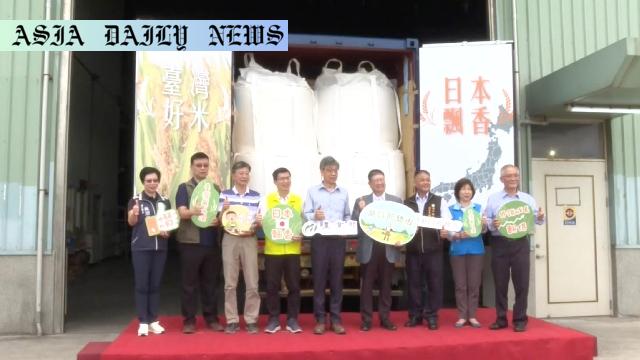Taiwan rice exports: Taiwanese farmers celebrate a massive increase in rice demands from Japan amidst surging domestic prices.
Taiwanian rice exports to Japan surged, benefiting farmers.
Exports in 2023 neared 7,800 tons, doubling last year’s total.
Taiwan’s agriculture minister anticipates a historic 10,000-ton export year.
The demand spike is due to Japan’s soaring domestic rice prices.

Surge in Taiwan Rice Exports: A Boon for Farmers
Taiwanese rice farmers are experiencing unprecedented growth, thanks to an unexpected surge in demand from neighboring Japan. With domestic production struggles and an increase in rice prices in Japan, the island nation’s locally grown rice has become a sought-after commodity. Taiwan has already exported nearly 7,800 tons of rice to Japan from January to May 2023, an amount that doubles the total exports of full-year 2024 expectations. These numbers indicate a historic export year for Taiwan, predicted to exceed 10,000 tons of exports by December.
The Strategic Push by Taiwan’s Agriculture Ministry
To strengthen relations and establish a strong market presence in Japan, Taiwan’s Agriculture Minister Chen Junne-jih has taken proactive measures. At a ceremonial event held in Hsinchu City, the excitement among local officials and farmers was palpable. The event showcased a container carrying around 100 tons of rice waiting to be shipped to Japan. Chen emphasized the superior quality and flavor of Taiwanese grains, hoping they would command a significant share of Japan’s competitive market. Efforts like this underscore Taiwan’s strategy to use quality-driven branding to differentiate its rice from that of competing nations, such as Vietnam or Thailand.
Understanding Japan’s Increasing Dependence on Imports
Japan, historically meticulous about its locally grown rice, is witnessing a shift in consumer preferences and needs. Due to economic fluctuations and a series of bad harvest years, rice prices within the country have soared. Consequently, Japanese importers have turned towards reliable partners like Taiwan, whose rice quality aligns with Japanese standards. Taiwan’s endurance in meeting demand – coupled with quick adaptation to export requirements – highlights not just economic opportunity but mutual reliance between the two nations.
The Economic Implications for Taiwan
This dramatic rise in rice exports demonstrates Taiwan’s adept response to global market needs and its capability to execute large-scale exports. For Taiwanese farmers, this surge means more income and opportunities to scale up production. The sector sees it not only as an economic win but also as a confidence booster, allowing Taiwan to showcase its agricultural expertise. With sustained agricultural policy support and quality control, Taiwan’s rice exports could continue scaling up in more international markets beyond Japan.
Future Prospects and Scaling Beyond Japan
While Japan’s current demand has been the centerpiece of 2023’s export success, Taiwanese officials and farmers are already eyeing future markets in neighboring Asian countries as well as Western nations. With proper branding and international promotion, Taiwan could turn its reputation for wholesome and high-quality rice into avenues for long-term economic prosperity. Analysts predict that leveraging such unprecedented export numbers will bolster Taiwan’s global agricultural trade strength, encouraging diversification across crops and countries.
Commentary
Japan’s Reliance on Taiwan: A Growing Opportunity
The story of Taiwan’s recent export success to Japan is striking not only for its immediate economic benefits but also for its reflection of shifting trends in regional cooperation. Japan’s decision to supplement high domestic rice prices with imports from Taiwan is an excellent example of responsive trade dynamics.
The Role of Quality in Agricultural Branding
It’s notable how much emphasis Taiwan places on the quality and flavor of its rice as a selling point. Agricultural goods often compete on price, but Taiwan’s focus on quality has enabled the country to carve out a niche market even among a discerning consumer base like Japan. This strategy showcases how nations can elevate their agricultural sectors by investing in quality and reputation, ensuring that their products meet high international standards.
Scaling the Success for Sustainable Trade
The ripple effects of Taiwan’s rice export spike are undeniable. Local farmers benefit from increased revenue, a stronger sense of national pride in their product, and opportunities to expand operations. Japan, on the other hand, gains access to a high-quality commodity that meets its growing domestic demand. For Taiwan, this success story should act as a blueprint: a reminder of the value in proactively engaging neighboring markets and understanding their needs. As both countries benefit, this partnership lays a firm economic foundation for mutual growth.


